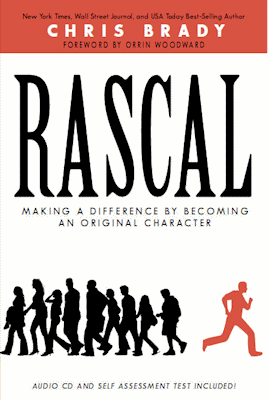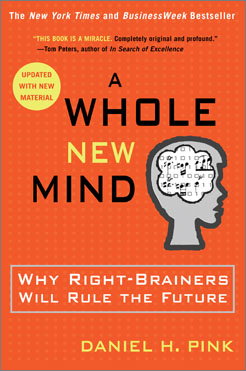How to Solve the Immigration Problem
January 15th, 2014 // 10:00 am @ Oliver DeMille
I finally read a proposal in the mainstream media for an immigration policy that is based, at least partly, on the American founding model.
The solution was suggested by Jagdish Bhagwati and Francisco Rivera-Batiz in their recent Foreign Affairs article, “A Kinder, Gentler Immigration Policy.”
This is exciting, and this can work.
The proposal boils down to this: Let the states try their own ways of handling immigration.
The results of such a policy would be interesting. At least one or two states will likely take a hardline policy against immigration, and a few will no doubt adopt a more lenient approach. Most will probably choose policies that are more in the middle.
As this happens, we’ll get to watch the results. Will the hardline states see negative social and economic consequences, or will the results be positive? What will happen in the states with lenient immigration policy?
States will have to decide whether to pay for the education and medical expenses of illegal immigrants, and how to deal with other issues that are truly, according to the Constitution, meant to be local and state issues anyway.
They will have to determine how to assess taxes from illegal workers, and how to respond to businesses that hire illegal immigrants in ways that bring the most benefit to the state, and they are much more likely than any federal agency to do these things effectively.
Over time, legislatures and courts will learn from these examples and trend toward the policies with the best results.
Not everything needs to be done from Washington. In fact, the founders specifically wanted most things to be done at the local, and if necessary, state levels.
A full 28 percent of Federalist Papers are dedicated to supporting this very point — what can be done by the states should not be done by Washington (see Federalist 17,23-30,33,41-51,53,59-60).
Critics will argue that illegal immigration poses a number of national security threats, and that national defense is clearly a federal issue. To address these important concerns, we can amend the proposal as follows:
- Secure the border, to fully protect our national security.
- Let the states try their own ways of handling immigration.
If history has shown us anything, it is that one of the fifty states is a lot more likely to adopt the right policy than Washington.
In fact, if the issue is left to Washington, it is doubtful whether we’ll ever get an effective policy — and many people feel that if Washington does pass something it may well be more bad policy.
America was founded as a federal republic, where the individual states were designed to laboratories that could teach each other — and Washington — what works and what doesn’t.
The wisdom of the framers can help us today in the debate on immigration.
 Oliver DeMille is the New York Times, Wall Street Journal and USA Today bestselling co-author of LeaderShift: A Call for Americans to Finally Stand Up and Lead, the co-founder of the Center for Social Leadership, and a co-creator of TJEd.
Oliver DeMille is the New York Times, Wall Street Journal and USA Today bestselling co-author of LeaderShift: A Call for Americans to Finally Stand Up and Lead, the co-founder of the Center for Social Leadership, and a co-creator of TJEd.
Among many other works, he is the author of A Thomas Jefferson Education: Teaching a Generation of Leaders for the 21st Century, The Coming Aristocracy, and FreedomShift: 3 Choices to Reclaim America’s Destiny.
Oliver is dedicated to promoting freedom through leadership education. He and his wife Rachel are raising their eight children in Cedar City, Utah.
Category : Blog &Foreign Affairs &Generations &Government &Liberty &Politics
It’s Time for Optimism and Leadership
January 10th, 2014 // 10:00 am @ Oliver DeMille
It’s time for optimism in America. Right now.
I’m convinced that the best era of America is still ahead. And it’s time to start building it, even if Washington won’t, and even if the politicians are going to bring us both ups and downs in the years ahead.
When we turn on the news, we hear of debts ceilings, a $17 trillion national debt, deficits, credit rating downgrades, inflationary money, layoffs, political party anger and name-calling, leaders who won’t negotiate, government shutdowns, sequesters, defaults, international unrest and conflicts, and on and on.
It’s a bit overwhelming, and most people are either deeply frustrated or have decided not to follow the news too closely.
But this is only part of the story.
While those in Washington argue, over and over, about their latest Crisis of the Month, a lot of regular citizens have done something very important. They’ve realized that the future is up to them, and not to the politicians.
And the numbers of such people are growing. Some are getting more involved than ever before at the local level, and others are spending more time strengthening their families. Some are studying current events with real passion, and others are tackling history and the great classics in order to learn a lot more.
Still others are focusing on community projects, service, teaching the youth, and supporting charities that really need more support, and quite a few are increasing their entrepreneurship — building the economy for themselves and others instead of waiting for politicians to get their act together.
And make no mistake, when the regular people in America, Canada, and other nations realize that it’s up to them and then take action, it’s like rousing a sleeping giant. When the average citizen stands up and gets involved, like after Pearl Harbor or during the American Revolution, big things really happen.
Right now, the giant is just starting to stir. The signs are faint, but they are growing: Tea Partiers, Occupiers, protestors, bloggers, radio-show callers, “social medi-ers,” and above all, lots of newly-focused volunteers and entrepreneurs.
The people are beginning to feel the need to take their nation back, especially their economy. The future is bright.
Whatever Washington does, the leadership spirit in our homes will determine the years and decades ahead. Many experts have dubbed the 21st century “the China Century,” but in truth the reason China is growing is widespread entrepreneurship. That’s the real story.
And up until now, most freedom-lovers have argued that American entrepreneurs will bring back our economy — if Washington will just get out of the way. This message is now changing.
As the problems in politics keep increasing, more and more people are looking around, taking stock, and saying, “You know what? Washington might never get its act together. So, I guess it’s up to me.”
This is the spirit of enterprise, and there is almost no power in the world as strong as a people fully committed to free enterprise.
This is an exciting time. Instead of waiting for the politicians to free up the economy, we’re now making the great FreedomShift: Regardless of what Congresses and Presidents and Justices do, let’s build our families, communities, and the economy to a whole new level — and show Washington what to do. We’re the leaders now. When we lead, the politicians will have to follow.
If you haven’t joined this movement yet, today is a good time to start.
Build a business.
Or read a great classic.
Start a class for kids in your area.
Or begin attending all your city council meetings.
Make and follow a plan to double your savings rate.
Brainstorm. Identify where your passions are, and then take action to genuinely improve your life and the world around you.
Get started. The economy and society need you. It’s up to us.
What the media and politicians don’t realize is that this is happening. The worse Washington gets, the more people are taking personal action. It’s real. And it’s growing. Whatever Washington does, this is the movement that will make or break our future.
Smile. Laugh with a friend. Tell your kids a joke and giggle together. Tell them that the future is bright. And take action to make it true.
Now is a time for real optimism.
 Oliver DeMille is the New York Times, Wall Street Journal and USA Today bestselling co-author of LeaderShift: A Call for Americans to Finally Stand Up and Lead, the co-founder of the Center for Social Leadership, and a co-creator of TJEd.
Oliver DeMille is the New York Times, Wall Street Journal and USA Today bestselling co-author of LeaderShift: A Call for Americans to Finally Stand Up and Lead, the co-founder of the Center for Social Leadership, and a co-creator of TJEd.
Among many other works, he is the author of A Thomas Jefferson Education: Teaching a Generation of Leaders for the 21st Century, The Coming Aristocracy, and FreedomShift: 3 Choices to Reclaim America’s Destiny.
Oliver is dedicated to promoting freedom through leadership education. He and his wife Rachel are raising their eight children in Cedar City, Utah.
Category : Blog &Economics &Education &Family &Generations &Government &Leadership &Liberty &Mini-Factories &Politics
The Only Two Ways to Fix Washington
January 9th, 2014 // 10:00 am @ Oliver DeMille
 Washington is broken, and the problem is short-term thinking.
Washington is broken, and the problem is short-term thinking.
In our current system, there is little or no incentive for our leaders to do what is right for the next generation — if it in any way conflicts with immediate concerns.
We know debt is bad, but in the short-term it’s easier to keep spending. And we realize that deficits are a problem, but it’s easier to ignore this problem and keep raising the debt ceiling.
This problem is systemic. For example, our business world is too often dominated by “Quarterly Capitalism,” which means that most companies manage their business one quarter at a time. The cause of this is the way our tax system is structured, with the government forcing this quarterly approach on business.
Likewise, nearly all politicians are required to adopt what Al Gore called “Quarterly Democracy.” Specifically, everyone raising money for political campaigns must report quarterly on how much they’ve raised, and this drives future fundraising and influences media support and opposition of each candidate.
As a result of these quarterly laws enforced by Washington, our business and political leaders are legally required to focus on the short term.
This is a serious problem. It impacts our national finances in a very damaging way. Anytime anyone — from either party or no party — suggests real solutions to current financial challenges, from budgets and debts to deficits and entitlements and debt ceilings and credit ratings, it is quickly ignored or rejected because real solutions can’t be implemented in 90 days or less.
This is a fundamental structural weakness of our current system of governance. Even when party or government leaders agree with a proposed solution, they can’t fit it in to the 3-month cycle and therefore it is always put on the back burner while they focus on immediate issues.
The framers incentivized the masses to think in annual election cycles, the House in two-year cycles, the Executive in four-year cycles, and the Senate in six-year cycles. These concentric cycles encouraged short-, intermediate-, and long-term thinking all at once.
Today, in contrast, pretty much all of our elected officials and business leaders tend to think in 90-day cycles, and the people have been sucked in to this pattern.
In fact, the masses of citizens, who are mostly now required by law to follow the monthly, bi-monthly, or even weekly pattern of paying taxes and bills with every paycheck (instead of annually when all revenues and expenditures are totaled for their businesses or farms), are widely caught in a paycheck-to-paycheck cycle. Indeed, they think monthly, while their leaders think quarterly.
The one group that was supposed to provide truly long-term thinking, the Supreme Court, has frequently done so on social issues but for the last few decades has failed to do so in financial matters. There are few indications that this will change any time soon.
This all benefits the wealthy elite, who do apply a long-term approach and thereby easily rule the rest of society that is caught in a “rat race” of short-term activity and confusion. Faulkner appropriately called it a “sound and fury.”
Hardly any American leaders today are focused on the next thirty years, taking effective actions that will create lasting national progress. In contrast, many leaders in China and India speak in terms of 50, 100 and even 200 years.
Canadian business leader Claude Hamilton called attention to last summer’s meeting between the presidents of the U.S. and China. In their opening remarks, the Chinese president noted China’s great progress over the past two centuries, and outlined Chinese goals for the decades and century ahead. Then President Obama responded by outlining the major contributions of his Administration during the past four years.
The contrast is glaring. We don’t really think about the future, at least not in terms of taking real action. If we did look ahead in any serious way, we’d see the absolute necessity of fixing our fiscal, monetary, entitlement, debt and budgetary problems. We are quickly headed for national financial disaster, but we can’t see it because it looks years off instead of weeks.
In short, our system is broken, and nothing will fix it until we once again learn to take a long-term approach. I don’t know how this can happen. The traditional way, which has worked at many times in human history, is to study history and learn its lessons.
But our current thinking is so myopically short term that when most modern people read history it doesn’t even seem relevant — like watching a movie that is interesting but doesn’t have much to do with us in real life.
I don’t know what the solution is to all this, because any real fix will include a long-term change. And today’s leaders and people mostly don’t understand how to do long-term fixes.
Suggest anything that will take five, ten, or twenty years, and many people today simply give you a blank stare. Then they click on the news and focus on stories that will be forgotten in 48 hours.
Through all of human experience, there have been two effective solutions to this problem:
- One is for the people to start reading history and classics and thinking in the long-term.
- The second is for the society to go through a major crash, war, depression or pandemic that forces people to slow down, reassess, and see the big picture.
I hope we still have time to choose the first option.
 Oliver DeMille is the New York Times, Wall Street Journal and USA Today bestselling co-author of LeaderShift: A Call for Americans to Finally Stand Up and Lead, the co-founder of the Center for Social Leadership, and a co-creator of TJEd.
Oliver DeMille is the New York Times, Wall Street Journal and USA Today bestselling co-author of LeaderShift: A Call for Americans to Finally Stand Up and Lead, the co-founder of the Center for Social Leadership, and a co-creator of TJEd.
Among many other works, he is the author of A Thomas Jefferson Education: Teaching a Generation of Leaders for the 21st Century, The Coming Aristocracy, and FreedomShift: 3 Choices to Reclaim America’s Destiny.
Oliver is dedicated to promoting freedom through leadership education. He and his wife Rachel are raising their eight children in Cedar City, Utah.
Category : Blog &Education &Generations &Government &History
The Future of Feminism
January 9th, 2014 // 9:00 am @ Oliver DeMille
 It could be over. The whole, centuries-long debate between men and women, as well as between women and women, over the best role for women, may be coming to an end.
It could be over. The whole, centuries-long debate between men and women, as well as between women and women, over the best role for women, may be coming to an end.
Ironically, this hinges not so much on women or men, but on both. And on children too.
Let me explain.
Feminism has progressed through several phases in history.
- First, women demanded voting and other basic equality with men.
- Second, they argued for the basic intrinsic equality of both genders.
- Third, they sought legal equality in the Equal Rights Amendment era.
All of these strategies made sense to men and women, even those who disagreed with the various leaders and agendas of feminism. After all, the idea of seeking equitable treatment and rights is basic to most Americans.
But at some point, starting in the 1980s, feminism took several interesting, and surprising, turns. Most men were shocked by the intensity of the woman vs. woman debate between those who argued that all women should have full-time careers and those who felt that such a choice was a downgrade for women, that their best work was done in the home.
This was followed by the “We Can Have It All” era, where many young women idealized having both full-time careers and all the benefits and rewards of full-time homemaking. One side said this was the ideal, another side argued that this was a mere illusion.
And finally, in the most recent evolution of feminist debates, dubbed “The Mommy Wars” by the media, some promoters of women in careers and some who believe that homemaking is the female ideal faced off in increasingly tense and extremely strong language.
By this point in the dialogue, men were basically left out of the conversation. National reports showed that more women than men are in college, and that men’s financial outlook is in decline while the earning future for women is bright.
Feminism was still a passionate topic, but the battling sides were made up almost exclusively of women.
That brings us to today. We now seem to be entering yet another major era of this discussion, but this time men are back in the conversation. They are front and center, in fact.
Women are increasingly talking about what men should, or shouldn’t, be. The idea seems to be that if men would just get their act together, many of the modern problems faced by women would be solved.
Like past battles, this one tends to anger almost everyone who thinks about it. One side makes the case that women are better off just living independently. They can have men in their life, if they choose, as long as they don’t become dependent on a man.
In fact, this view seems to accept that men will come and go, and that ultimately a woman has herself, her education and career, and a few close (women) friends that she can really depend on.
Her battles, in this narrative, are against enemies and frenemies, who are nearly always other women — not against men.
This worldview shows up in numerous recent movies and a host of articles in women’s magazines. Watch popular women’s talk shows, and this perspective is nearly always accepted as a fundamental — and undebatable — assumption.
On the other side is a growing view that men and women are very different, that each should fully engage their differences, and that both are happiest when this occurs.
As I said, this is ruffling feathers wherever the new view is shared.
Many women who agree with the historical goals of feminism — and men who view themselves as enlightened, modern, sensitive males — find this newly popular perspective corrupt, positively medieval, and above all, baffling.
Perhaps the most disturbing thing about this new era of discussion about men and women is that the majority view (the “Independent Woman”) patently refuses to even entertain the growing new perspective (“Real Men/Real Women”).
It is similar to when feminism first began, and men just ignored it, discounted it, or perhaps even laughed at it. This is how the current majority Independent Woman crowd is treating the growing Real Man/New Women minority.
In case you haven’t yet heard this new perspective, it goes something like this:
- Men are happiest when they are deeply involved in a chosen life mission that centers around their deepest interests and passions, their life purpose.
- Women want just such a man; anything less is a letdown to them.
- Men want a woman who will support them in this purpose and help them achieve it.
- Women are happiest when they are helping a man who is deeply engrossed in such a life mission, and raising sons who will someday pursue just such a mission and daughters who will help a man do this as well.
For the Independent Woman crowd, the Real Man/Real Woman view sounds a lot like a modern return to the worst elements of old-style patriarchy, the very reason that feminism was invented.
But as feminism proved, just ignoring this growing minority perspective isn’t going to make it go away.
A lot of people, both men and women, swear by this rising view. For them, women are equal to men, and should have all the same opportunities in education and work. And the happiest equal men and women, they maintain, follow these simple guidelines.
Men want a woman who above all wants to support him and raise a family, and women want a man who gives his life to a central purpose and raising a family.
If a man doesn’t have a life mission, a great purpose, he isn’t going to be very happy. And his woman won’t be very impressed with him. Neither will she feel valued or fulfilled in a marriage if her spouse does not depend on her to help in a real, important purpose.
This is the immediate future of feminism, the debate between the Independent Woman viewpoint and the Real Man/Real Woman perspective. Like I said, this is making a lot of people angry.
On the humorous side, this really is a return to the beginning of the whole debate about feminism. The first shall be last and the last shall be first, I guess.
But there is one big difference this time: the Independent Woman crowd is in the majority — at least in the media, academia, government, and other centers of pop culture.
How this difference impacts the debate remains to be seen.
Just to be clear, I agree with the Real Man/Real Woman side of this argument. I’m just fine with men or women being fully independent. I think we should all have the freedom to choose what we want, and the fact that my daughters (I have 5) have as many options as my sons makes me very happy.
I also think that the happiest men are passionately focused on a great life purpose, and the happiest women are married to such men — where they help each other in the most important parts of life.
Are they equal? Of course. Are they different? Of course. Should this be used as an excuse for men to control women, or for women to control men? Of course not.
But here’s the real problem: Our modern society is structured by the elitist class to convince the rest of us not to engage a central life mission or purpose. We are taught to get an education that will give us a job, a career, working for corporations and institutions run by the upper class. We are taught that our great life passions and interests are at best hobbies.
We are taught that well-paid professional drone work is the ideal — for men and for women. We are taught that children should be trained in schools run by the policies of elitists, seeking the goals outlined by elitists for those in the middle and lower classes.
This message is being taught in nearly every school in modern America. It is being promoted from Hollywood, and encouraged by Madison Avenue. It is being increasingly regulated and enforced from Washington.
Worst of all, more and more parents teach this message to their kids: “Get good grades, get into a good college, get a good career, and spend most of your adult hours working for someone else’s profit and power. This is the key to a happy life.”
As long as this lie dominates our society, a majority of men and women are going to miss out on real life. That’s the future of feminism, manhoodism, childhoodism, socialism, and capitalism.
It’s a serious problem.
For men, women, and children.
And the only thing that has any chance of changing it is Real Man/Real Woman ism. Real Men and Real Women find a great life purpose and give their all for it. And, where possible, they do this together. This is the key to a happy life.
That’s where I stand. I hope you do too.
 Oliver DeMille is the New York Times, Wall Street Journal and USA Today bestselling co-author of LeaderShift: A Call for Americans to Finally Stand Up and Lead, the co-founder of the Center for Social Leadership, and a co-creator of TJEd.
Oliver DeMille is the New York Times, Wall Street Journal and USA Today bestselling co-author of LeaderShift: A Call for Americans to Finally Stand Up and Lead, the co-founder of the Center for Social Leadership, and a co-creator of TJEd.
Among many other works, he is the author of A Thomas Jefferson Education: Teaching a Generation of Leaders for the 21st Century, The Coming Aristocracy, and FreedomShift: 3 Choices to Reclaim America’s Destiny.
Oliver is dedicated to promoting freedom through leadership education. He and his wife Rachel are raising their eight children in Cedar City, Utah.
Category : Blog &Culture &Current Events &Family &Generations &History &Politics
Summer Reading for YOU
June 14th, 2013 // 10:56 am @ Oliver DeMille
5 Recommended Books for the Summer
by Oliver DeMille
“Dad, can you read to me more?” Meri asked me.
Surprised, I looked up from my book and responded, “Oh, sure.”
I took the book she was reading and read a chapter aloud to her. When I finished, I handed her the book.
“Thanks, Dad,” she said. “I could have read it myself, but I just love it when you read. I mean, in the winter you read to us a lot, and with all our classes and other activities it seems like I learn a lot from you, and all my other teachers.
“In the summer is when Mom reads to us the most, out on the couch on the porch, but I don’t learn as much from other people, and it seems like you don’t read to us as often.”
Meri walked away with her book, but our little conversation got me thinking. I’ve always taught that winter is the key time for family reading. But I think that summer is the most important time for kids to see their parents reading—mainly because they tend to spend less time on official “schooling” activities and more relaxed time with parents (and observing their parents’ leisure activity choices) during the summer months.
When children and youth see their parents reading a lot, they naturally value reading. When children and youth value reading, they read more.
Our choices during summer to make a huge difference in the education of our kids, and one of the most impactful things a parent can do is set the example of reading. If your kids see you reading books a lot, especially during summer leisure, not only are you filling your bucket of ideas and resources, but the example you set can drastically influence them. Reading is powerful!
On the national scale, all free societies are reading societies, and reading starts in the home!
Here’s a great summer reading list* that I’m following. I’m making sure all my children and youth see me reading these books this summer. And I’m really going deep—by reading with a highlighter and pen, taking notes and marking quotes as I go. I’m sharing these books because I hope you’ll do the same:
The Early History of Rome, by Livy
 This great book isn’t part of the Great Books of Western Civilization, but it could be. I want my children and youth to see that I care about history, and I’ll look for opportunities to share Livy’s stories with them and talk about the connection between reading history and being successful leaders in life.
This great book isn’t part of the Great Books of Western Civilization, but it could be. I want my children and youth to see that I care about history, and I’ll look for opportunities to share Livy’s stories with them and talk about the connection between reading history and being successful leaders in life.
Rascal, by Chris Brady
 I want my kids to know what a “rascal” is–at least the way Brady defines it. I want them to be the kind of people this book promotes, and I can’t wait for them to ask me about this book.
I want my kids to know what a “rascal” is–at least the way Brady defines it. I want them to be the kind of people this book promotes, and I can’t wait for them to ask me about this book.
 A Whole New Mind, by Daniel Pink
A Whole New Mind, by Daniel Pink
I want my youth to be innovative, creative, and have initiative. This is one of the hardest things to teach, but I’ll look for opportunities to discuss these things as I read this book.
Isaiah, in the Bible
I love sharing scriptural verses with the kids and discussing the meanings and lessons. It leads to a lot of important conversations with the kids about the most important topics.
 Voyage of a Viking, by Tim Marks
Voyage of a Viking, by Tim Marks
I can’t wait to talk to my kids and youth about this book! It’s about seeking for greatness, learning from your mistakes, not settling for mediocrity, and constantly improving yourself. I know the title of this book will have all my kids asking me questions about it!
Chillin’ and Grillin’
This week I’ve been reading these books in the evenings outside by the grill and the court where the kids play basketball, in the hot afternoons near the swamp cooler, and in the kitchen before meals and during cleanup after the family eats. I’ve taken turns with each book, so I’m a few chapters into all five of them, but I’ve had more than one discussion about each with the kids.
Tonight as dinner started, I got everyone’s attention and said, “I’m reading this awesome book. Actually, I’ve read it before but I’m re-reading it and I want to share something from it that really touched me.”
Everyone quieted down and listened. “Here goes,” I said. Then I read from Voyage of a Viking:
Kids can be pretty relentless in teasing one another, and the kids in my school were no different. I had never before been the subject of teasing and bullying, so it was a new experience for me. You see, news of my parents’ divorce got around town pretty quickly, and it wasn’t too long before the news hit my schoolyard.
The little kids in the family were leaning forward at full attention, and even the teens were paying close attention. I kept reading:
And then the teasing began. ‘There’s Tim, and he doesn’t have a dad,’ the kids would whisper to each other and taunt me.
I stopped reading and asked, “How would that make you feel?”
“I’d hate it!” Meri said forcefully. The other kids agreed.
After they shared their feelings, I asked, “Have you ever been teased like that?” We discussed this for a while, then I asked everyone, “Okay, I have another question. Have you ever teased anyone this way?”
“No way!” Meri exclaimed. She is nothing if not earnest.
“Are you sure?” I asked slowly.
Everyone considered. “Well, actually,” Meri said, then she told several stories of when she wasn’t very nice to people in her life. The other kids shared too, and we had a great conversation about being good friends and also standing up against bullying even when the victim isn’t your friend.
When I read what happened next in the book, everyone got even more interested. You’ve got to read it to get it! We spent dinner talking about this and discussing it.
At the end, I said, “I’m so excited to read the rest of this book.”
“Me too,” America said emphatically. “Meri” is nine years old, and she loves to read. I don’t know when she’ll read Voyage of a Viking, but I’ll be sharing from it and the others on my list all summer.
Actually, I’m having a hard time reading it because after our dinner discussion my visiting twenty-year old daughter Sara borrowed my copy and is reading it. Oh well, she reads fast. In the meantime, I’ve got the other four books.
Tomorrow at breakfast I’m planning to share the following quote from Livy, where he says that he is excited to write about Rome because, as he puts it:
I shall be able to turn my eyes from the troubles which for so long have tormented the modern world.
I’ll ask the family, “Why do you think people always feel that the modern, current world is so chaotic and hard and that the people in history somehow had things more simple? I mean, Livy thought this clear back in the time of Jesus Christ.”
This question is more for the teenagers, while yesterday’s conversation was perhaps more accessible to the younger kids. But everyone takes part in all of it. The older ones (me included!) bear reminding about Core Phase issues, and the younger ones benefit immensely by being including in the discussion of “serious” topics of academic and intellectual interest.
I could go on and on sharing examples of how to do this, but I’ve got a book calling to me. I’ve finished work for the day, and I want to read in the yard this evening—so I’ll be near the kids and we can talk.
Maybe I’ll teach them from one of these five books I’m reading, or maybe Meri will bring me a book of her own to read and talk about. Or perhaps we’ll all just sit in the warm evening and watch the sunset and talk. I often have the stack of all five books around with me, so I can just pick and choose which to read and share.
In any case, I’m excited to keep reading and sharing my book list this summer. This first week has been great. I can’t wait to see what we’ll learn about together in the months ahead.
Summer is a great time for education. So just get out your books, start reading, and share! The impact on freedom is huge.
Also check out Summer Reading for Kids >>
*Most of these books are available at your local library. Or, check the affiliate links to see amazon reviews, etc.
Category : Blog &Book Reviews &Business &Citizenship &Culture &Education &Family &Generations &Independents &Leadership &Liberty &Mission &Statesmanship











